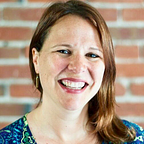Designing your End-of-Life Experience
Dying is one of life’s greatest mysteries
It’s an unpleasant topic, one our Western culture infrequently considers because it can be so unexpected and challenges us on an existential level. The idea of planning our own death is often the furthest thing from our minds — it’s too morbid to even think about. But it is a necessary conversation to have because we will all die one day. And it is our loved ones that are left with the burden of handling our death wishes during a time of grieving.
Things to Consider:
Have you considered your own death wishes? How will your body be handled, who is your executor and what kind of service would you like?
At Harmonesse, we work hard to help organizations achieve harmony by putting people at the heart of the life event, in this case not just the deceased but their next of kin too. Recently, we ran a workshop with BC Government to uncover opportunities where improvements could be made to their services around death.
Did you Know?
In British Columbia (BC) alone, there are approximately more than 37,000 deaths predicted annually where only 55% of BC adults have a legal Will. And though about 90% of people agree death should be talked about, only 27% of people actually follow through with it.
It’s uncomfortable to think about our own death because many of us are in denial of our mortality. But according to Stephen Jenkinson from the Orphan Wisdom School in Canada, it’s pointless to deny death because its presence will always be there. There isn’t a way for us to ignore or even avoid it. And the more resistance we have towards death, the more it becomes a monster, haunting us from the back of our minds, wondering when it will come for us.
If a will and our death wishes haven’t been prepared, there are a few problems your next of kin might run into:
- Family Disputes: As an example, Sabrina’s grandfather passed away in the hospital, surrounded by his loved ones. Unfortunately, he hadn’t prepared a will ahead of time so the family became divided on his funeral service — he had asked to be cremated but was buried instead. His body lay in the morgue for three weeks before the family could decide.
- ‘Intestacy’: When you die without a will, the province considers your death an ‘intestacy’ under the Wills, Estates, and Succession Act (WESA). This means the province decides how your remaining assets will be divided, not you. As each province has its own rules regarding intestacy, it does not consider any intentions you had for your loved ones and could result in additional legal fees for your beneficiaries.
- Emotionally Preparing for What’s Next: If you’re unsure of how to prepare emotionally for your death, speak to funeral directors to help ease your mind. They’re trained professionally to advise you on all aspects for preparing for your death.
Not all industries are geared to help people deal with death in a holistic way.
To help ease the fear of death, there are many avenues to guide you through designing the process, approaching it in an engaging, empowering, and mindful way:
- Speak to a Death Doula/Attend Workshops
With a goal to support people not only through practical aspects of death but in spiritual, social, and environmental as well, Willow guides people on how to creates a rich and mindful end-of-life experience. - Participate in a Death Network or a Death Caring Community Group
Take part in forums where people can share taboo subjects, hilarious stories, and beautiful ideas on approaching life after death. There are a variety of resources to understand legal terms such as ‘probate’ and ‘intestacy’ and even how to navigate taking your loved ones off social media. - Dealing with Digital Death
It’s something many of us generally don’t even think about but what would you like to happen to your digital assets after you’re gone, especially the data contained in your digital life? Knowing how you would like to deal with your digital assets after you’ve died helps prepare your loved ones during their grieving process.
Death is an uncomfortable topic for many people, that’s a given, but it shouldn’t be a topic we sweep under the rug because we will take care of it ‘later’, since ‘later’ might be too late. Let’s change the way we approach the idea of death by mindfully considering our death wishes, writing them down and sharing them on a regular basis. And if you have a hand in designing your end-of-life experience, it will only provide an easier transition for you and your loved ones to live a more peaceful life.
